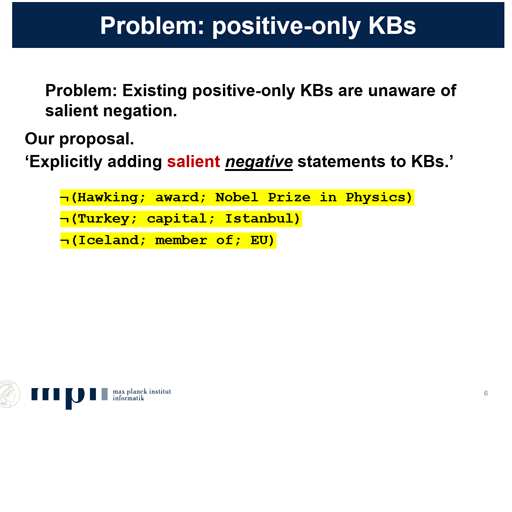Enriching Knowledge Bases with Interesting Negative Statements
Hiba Arnaout, Simon Razniewski, Gerhard Weikum

Keywords: information retrieval, knowledge bases, ranking, negation
TLDR: Most knowledge bases so far only contain positive information. We argue for the importance of negative information, and present two methods to mine it.
Abstract:
Knowledge bases (KBs), pragmatic collections of knowledge about notable entities, are an important asset in applications such as search, question answering and dialogue. Rooted in a long tradition in knowledge representation, all popular KBs only store positive information, but abstain from taking any stance towards statements not contained in them.
In this paper, we make the case for explicitly stating interesting statements which are not true. Negative statements would be important to overcome current limitations of question answering, yet due to their potential abundance, any effort towards compiling them needs a tight coupling with ranking. We introduce two approaches towards automatically compiling negative statements. (i) In peer-based statistical inferences, we compare entities with highly related entities in order to derive potential negative statements, which we then rank using supervised and unsupervised features. (ii) In pattern-based query log extraction, we use a pattern-based approach for harvesting search engine query logs. Experimental results show that both approaches hold promising and complementary potential. Along with this paper, we publish the first datasets on interesting negative information, containing over 1.4M statements for 130K popular Wikidata entities.